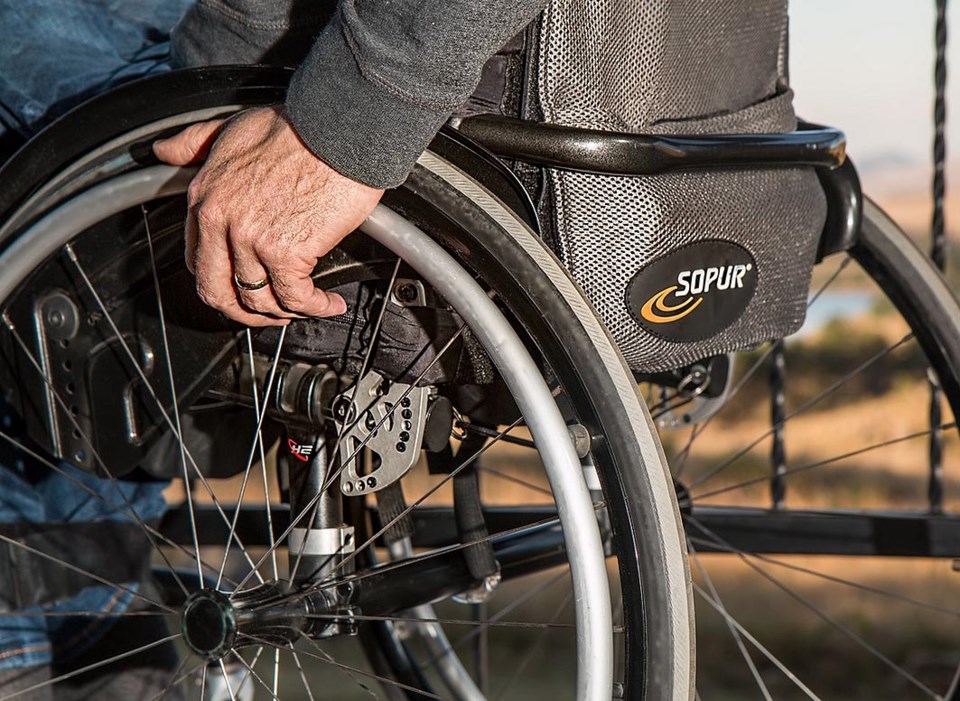Another new civic advisory committee aimed at improving the lives of Delta residents will be meeting again this Wednesday.
Meeting for the first time earlier this year, the Mobility and Accessibility Committee is to provide advice to city staff on new and existing city infrastructure and programs to support mobility and accessibility throughout Delta.
The group includes representation from several municipal departments, six members who live in Delta and experience mobility or accessibility challenges as well two expert representatives.
To meet four times annually, the committee will provide input on capital infrastructure projects with potential mobility and accessibility impacts, opportunities to improve existing infrastructure and programs to meet the needs of people with disabilities.
Member and Delta resident Vincent Miele, an advocate for the disabled, had requested the city create a new committee to focus on challenges disabled residents face.
He wrote to council that while it’s good that the Mayor's Task Force on Diversity, Inclusion, and Anti-Racism was created, nowhere was there specific mention about the ongoing erosion of access and discrimination of persons with disabilities through abuse or ignoring the Building Code.
“This includes lack of full wheelchair access to newer public facilities, transportation, housing, proper parking for persons dependent on mobility devices, full serve gas etc. This too is a form of discrimination and should be addressed as we too have been included in the Canadian Charter of Rights and Freedoms since 1982,” said Miele.
The agenda for this week’s meeting includes presentations on proposed new development projects including the housing application for Evergreen Lane in Ladner and the KinVillage redevelopment in Tsawwassen.
Other issues to be discussed include: Delta sidewalks and the province’s Bill 6, the Accessible British Columbia Act.
At their February meeting, the committee discussed several issues including proposed accessibility parking regulation changes, which the committee endorsed.
Recently approved by council, the amendment will increase the accessibility of parking in the city by adding requirements for van accessible parking where accessible parking is required, as well as add a requirement for residential visitor parking to include accessible parking.
Committee members also discussed the difficulty in finding accessible parking spaces along some of Delta’s busier streets.
One member commented that Calgary allows residents to apply for an allocated accessible designated parking space on public streets, suggesting Delta consider something similar.
Regarding making buildings more accessible, members were told that when bylaws change, the city cannot legally make those bylaws retroactive.
Staff do not have the authority to ask businesses to upgrade to the current building standards when in compliance with the standards that were in place at the time a building was built, according to planning staff.
As far as the provincial government’s recently introduced accessibility legislation, it’s to allow government to establish accessibility standards aimed at identifying, removing and preventing barriers to accessibility and inclusion.
Standards are to be developed in a range of areas such as employment, the delivery of services and the built environment, the province explained.
The government also notes B.C. is the largest province by population in Canada that has not passed comprehensive accessibility legislation.
In 2017, there were an estimated 926,100 British Columbians, which is over 20 per cent of the population, who reported having a disability.


